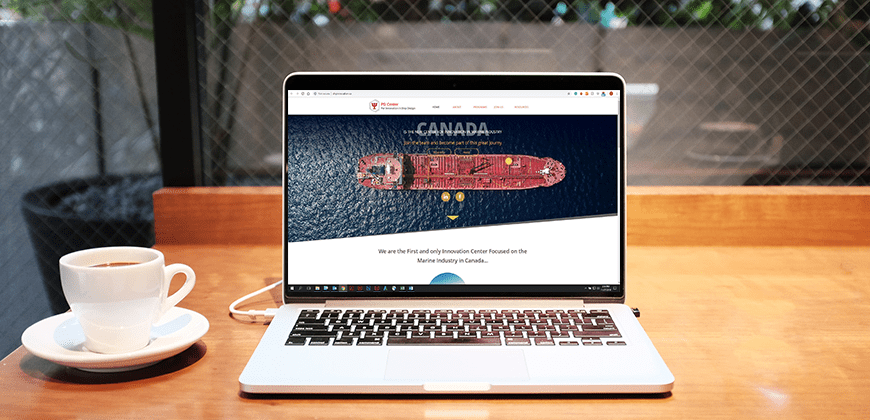Incubator Program for Startups in the Shipbuilding Industry
Naval Architecture and Marine Engineering Group Project
MEL students in Naval Architecture and Marine Engineering hope to meet the needs of students, startups and large industry players.

Incubator programs are a proven way to help entrepreneurs develop their ideas and grow their business. Many incubators are industry-specific, linking entrepreneurs who have innovative ideas with mentors who can advise on strategies for launching a successful venture.
Until now, the shipbuilding and marine engineering industry in BC has not had an incubator program focused on the unique needs of startups in this specialized field. That’s all about to change thanks to the work of Reza Saadatmand and Luiz Abdenur, two students in the Master of Engineering Leadership (MEL) in Naval Architecture and Marine Engineering program.
“I came up with the idea at the beginning of the year after learning about the entrepreneurship@UBC innovation and incubator program,” says Saadatmand. “Before enrolling in the MEL I’d developed a technology platform that functions as a virtual incubator. This was a great opportunity to use the work I’d done in another sphere to meet a pressing need within the shipbuilding sector.”
Saadatmand and Abdenur refined their ideas over the summer term, building on their professional backgrounds and the business and entrepreneurship skills they were developing through their MEL classes.
“Canada’s National Shipbuilding Strategy offers opportunities for innovative businesses to thrive and grow,” says Saadatmand. “But many people with technical knowledge in this field are uncertain about how to build their business. Luiz and I saw an opportunity to support startups in the shipbuilding industry.”
Their venture – the PSI Center for Innovation in Ship Design – includes multiple program streams to meet the needs of students, startups and large industry players. The incubator program offers advice, mentorship and funding opportunities for startups ready to translate an innovative idea into a viable business. It also leverages the power of the proprietary technology platform developed by Saadatmand, which makes it easier for startups to showcase their work and gain support from industry as the business grows.
A Learning Center provides stand-alone innovation training using specialized techniques to find tangible solutions. The team also offers customized training to industry partners who want to foster their employees’ ability to develop ideas and address specific business or technical challenges.
Saadatmand and Abdenur are also proposing a competition that would see industry partners put forward challenges as an opportunity for students to come up with innovative and sustainable solutions to real-world problems.
“We imagine that many of the ideas generated by this could prove a useful starting point for a business venture,” says Saadatmand.
Current students in the NAME program are already working under the umbrella of the PSI Center for Innovation and have suggested ideas for startup businesses – from software for managing engineering data to scrubber modifications that reduce particulate emissions.
The two hope to see the PSI Center for Innovation grow into the first-choice incubator for startups in the shipbuilding sector. Next up will be reaching out to industry, UBC and government to explore funding and networking opportunities. “Industry is our ultimate customer,” says Saadatmand. “So we are looking at our options to see how we can make this as relevant as possible to the sector as a whole.”
Check out the PSI Center for Innovation in Ship Design.
Application Deadlines
The online application portal for the January 2025 has closed.
Get ready to apply!
Admissions for the 2026 intake will open on January 1, 2025.
How to ApplyNaval Architecture and Marine Engineering
Combine the engineering and physics of ship design with broad business and leadership training.
Read More


